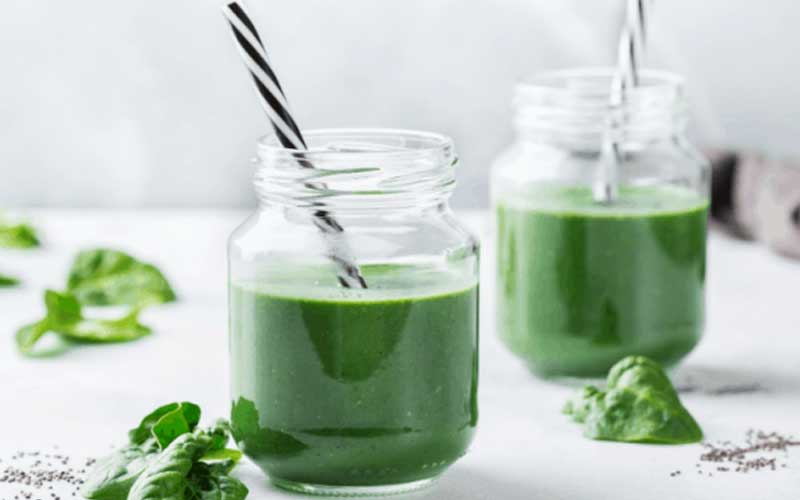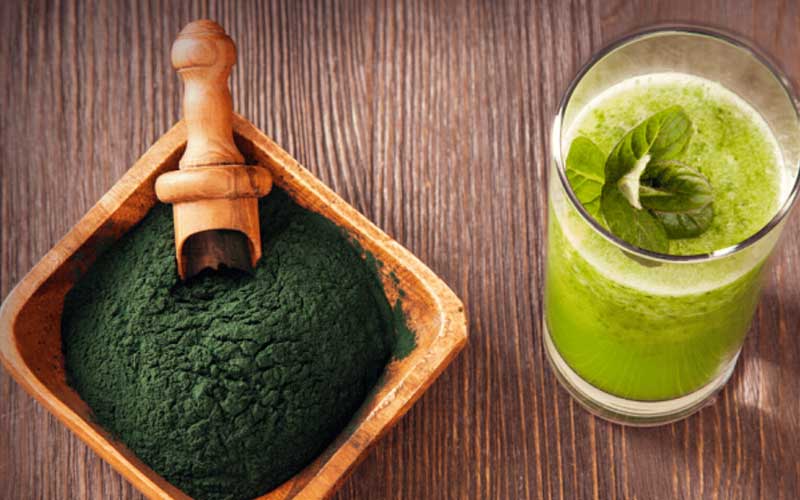Spirulina is a kind of blue-green algae which includes several nutrients, including vitamin B, beta-carotene and vitamin E. Spirulina drinks also include antioxidants, minerals, chlorophyll, and phycocyanobilin. It is commonly used as a source of vegetable protein.
1. Health Benefits
Spirulina drinks have been used among the proponents to support several health conditions, including fatigue, high cholesterol, high triglycerides, and viral infections.
2. High Cholesterol
Spirulina has some promise for lipid disorders such as high cholesterol or high triglycerides, according to a study published in the Annals of Nutrition and Metabolism. Healthy, older adults used spirulina or placebo for the study. After four months, spirulina was associated with a significant reduction in cholesterol1.
3. Allergies
Spirulina has some promise in the treatment of allergic rhinitis (nasal allergies). According to a review published in 2009.2 In fact, a previously published study of people with allergic rhinitis found several benefits to spirulina intake, including improvement in symptoms such as nasal discharge, congestion, sneezing, and itching.
4. Diabetes
In a 2008 study concerning 37 people with type 2 diabetes, a study discovered that those assigned to 12 weeks of spirulina supplementation experienced a significant decrease in fat blood levels. Spirulina benefits also included decreased inflammation and decreased blood pressure and cholesterol for some people.
In another short study, 15 people diagnosed with diabetes who did not take insulin took 2 grams of spirulina daily in supplement form for two months. They did not change any other factors in their lifestyle or diet. At the end of the study period, participants experienced a decrease in blood sugar, cholesterol, and triglyceride levels.
5. Allergies
Spirulina has some promise in the treatment of allergic rhinitis (nasal allergies). According to a review published in 2009.2 In fact, a previously published study of people with allergic rhinitis found several benefits to spirulina intake, including improvement in symptoms such as nasal discharge, congestion, sneezing, and itching.
6. Diabetes
In a 2008 study concerning 37 people with type 2 diabetes, a study discovered that those assigned to 12 weeks of spirulina supplementation experienced a significant decrease in fat blood levels. Spirulina benefits also included decreased inflammation and decreased blood pressure and cholesterol for some people.
In another short study, 15 people diagnosed with diabetes who did not take insulin took 2 grams of spirulina daily in supplement form for two months. They did not change any other factors in their lifestyle or diet. At the end of the study period, participants experienced a decrease in blood sugar, cholesterol, and triglyceride levels.
7. Oral Cancer
Spirulina may protect against oral cancer, according to a short study of tobacco chewers with oral precancerous lesions. The study members took either a daily dose of spirulina or a placebo for 12 months. By the end of the study, 20 of the 44 participants who had taken spirulina had cleared the lesions (compared to three of the 43 participants who had been assigned to the placebo group).
8. Losing Weight
People could usually lose weight if they eat fewer calories than they do. Spirulina is a high-nutrient, low-calorie food with a lot of food in a small amount of powder. Introducing spirulina to the diet can help people lose weight without compromising their nutrition.
The results of a double-blind, placebo-controlled trial in 2016 suggest that spirulina may help with weight management. In a study, people who were overweight and normally ate spirulina for 3 months had an improved body mass index or BMI.
9. Improving Gut Health
Spirulina can be easily digested due to its structure, where the cells do not have hard, fibrous walls. But can it be used to improve intestinal health? More human research is needed, but animal studies indicate that spirulina may promote intestinal health as people age. A 2017 study on older mice suggests that spirulina may preserve healthy intestinal bacteria during the aging process.
Spirulina does not contain much fiber, so it is essential to include other intestinal-healthy, high-fiber foods.
10. Boosting Metabolism
Taking spirulina may help boost the metabolism of a person. A higher metabolic rate may make a person feel like they have more energy. It may also increase the number of calories they burn each day, which may contribute to weight loss.
a small-scale 2014 study, people taking 6 g of spirulina a day experienced beneficial metabolic effects alongside weight loss and improved health-related quality of life.
People in this study have had non-alcoholic fatty liver disease. So more research is needed to see if spirulina can boost metabolism in others without this condition.
11. What to Look For
Spirulina is often sold in powder form, but it is also available in capsules, tablets, and juices. Sometimes the powder is added to the smoothies. Although there are many blue-green algae species commonly referred to as spirulina, most spirulina supplements contain Aphanizomenon flos-aquae, spirulina maxima, and/or spirulina platensis.
As with all supplements, it is important to check the “Supplement Facts” label for any product you purchase. This label will contain vital information, including the number of active ingredients per serving and any other ingredients present in the product.



